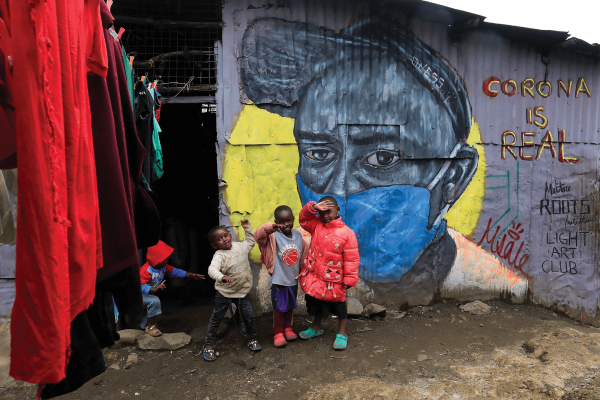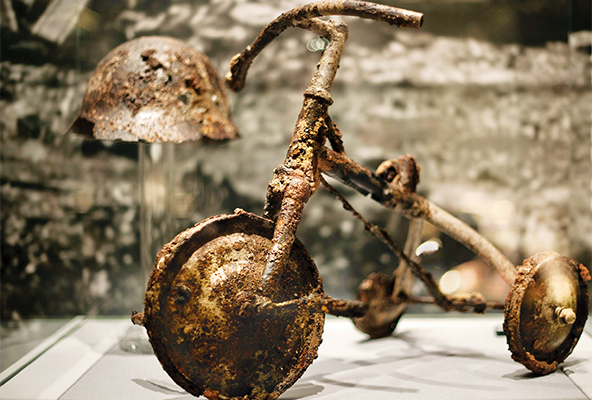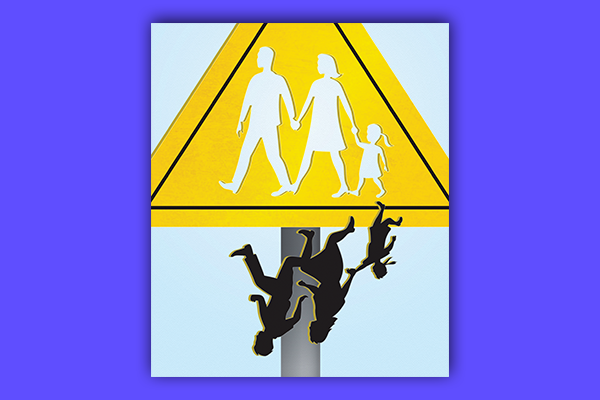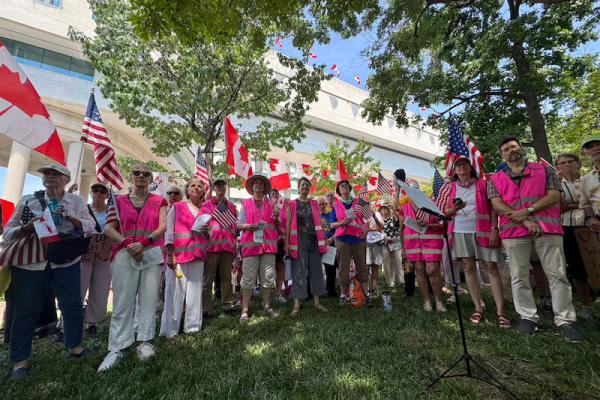“IN OUR COMMUNITY, the way homes are clustered and clumped together, there is no social distancing. There is poor water supply. There is a poor drainage system. What hit me so hard was that if this disease were to get in the areas where we are working, it would mean that the whole population of that area would be cleared out. Because if one person gets the disease, it would really spread so fast to other people.
People in Mathare [in Nairobi] depend on day-to-day activities for earning income—you wake up in the morning, someone will call you to wash their clothes, to do their household chores. So you can’t tell them to work from home because they have to go out and [earn money] for food. Yes, they are scared of the disease and no one wants to get it, but sometimes they feel, ‘If I stay at home, me and my children are going to die hungry, so I have to keep getting out and looking for food.’ It’s a matter of which one is the lesser evil. Should I stay at home and not get coronavirus? Or go out and look for food and pray that everything will be okay?
So far, we thank God we haven’t had any COVID-19 cases. What keeps me going is the desire to preserve life and preserve communities. These populations are already at risk, even without any pandemic. With the pandemic, the risk is even heightened—so this is the time when they need us most to be there.”
Judith Siambe and Christabel Awuor, maternal and child health and nutrition officer, spoke with Sojourners about CPN’s COVID-19 prevention efforts in Nairobi’s Mathare slums.
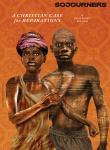
Got something to say about what you're reading? We value your feedback!
